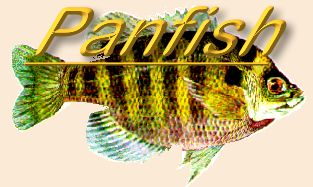When there is ice on the ponds weird things happen in
the mind. Well, maybe they happen all the time, but that
is another question all together. Here are some random
things that have been running around in the dim dark
corners of my mind. Some of these have been rumbling
for a long time.
Why do most of us build such large heads on flies? I just
read that the late Paul Jorgensen, who tied beautiful Atlantic
Salmon flies, would wrap a material on with three wraps.
When he was ready to put the next material on, he would
take two of those wraps off.
One of the largest mistakes I made was making too many
thread wraps to hold materials on when I first started tying
flies. I have read many cautions about doing this in fly tying
instruction books, after I started tying. Why read the directions
before you start doing something? All this did was add bulk
to the fly. Maybe not so important on a size 4 hook, but what
about a size 26 hook? Since most of us are probably creatures
of habit, then it may be very important to do the same number
of thread wraps to hold material on any hook size that we are
tying on.
I will confess that my flies have much smaller heads than you
will find on flies in the bin. I will admit that this is not true on
every fly I tie. The Goldie Jr, in FAOL, FOTW archives, has
a lot of thread behind the bead head. But on most of my other
flies, I will make two thread wraps to hold the material, cut the
excess off, make two more thread wraps and then whip finish.
That is a lot less thread then I see on the flies in the bins.
Let me give my defense of doing this. I have been tying up
several flies on size 24 to 30 Tiemco hooks. On flies this
small there is just not the opportunity to use a lot of thread
on the fly. I have caught numerous fish on some of these flies
and they seem to be holding together. A few come apart after
a fish or two, but that happens with any fly I tie. Many other
flies of the same pattern last for several fish. So if this works
on a size 26 hook, why am I making 20, 30, or 40 thread
wraps at the front of a fly on a larger hook?
I wonder if heresy like this will get me banned from the board?
Or maybe cast out of the sport?
Flies in contests, about tying flies, have had comments on how
the head was constructed. It seems that this is part of the
tradition of tying flies, but I still wonder why.
Another thing that I wonder about, and have not done much
to experiment on it, is what effect a magnetized hook might
have on fish in dingy, dirty water? A little background to bring
you to where this question comes from.. It has been written
that salmon seem to use magnetic fields to get close to the
stream of their birth and then use their sense of smell to go
up the correct stream.
It is well known that fish use their lateral line to help locate
prey from a long distance. That is why folks use very large
vibrating, pulsating baits to catch fish in dirty water. To pull
from outside fly fishing, a spinner bait works better than a
plastic worm in very dirty water. Part of this may be the flash,
but a lot of it is the nose and waves the spinner bait makes.
Since all fish are related, would it help to use a magnetized
hook when I am fishing in dirty, dingy water? I will admit that
the field caused by this would not be very strong. But would
it need to be very strong?
If the fish gets close to the fly with its lateral line, would this
be enough more to help the fish locate the fly? I may have
to play with some flies that are tied on hooks that have been
magnetized.
Another question that I will toss out to you. Why don't more
of us use dry fly hackle on wet flies with a beadhead to get
more push in the water? This seems to make sense in that the
fish would have more stimulation to their lateral line. This I have
been playing with for a little while, but I don't really have a good
feel as to whether it makes a difference. But I still tie flies this way,
to do more experimenting. I tend to tie them on first when fishing
in dirty water. Does your mind wonder into places like this?
Hope you (and I) can get out on the water soon. ~ Rick
|

